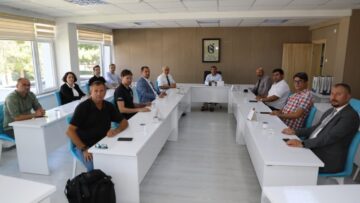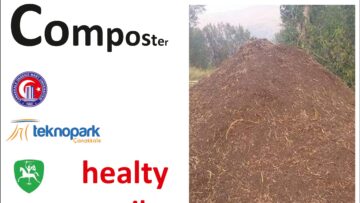Project description
Virtual Workshop Çanakkale
2021 yılı Erasmus+ Mesleki Eğitimde İşbirliği Ortaklıkları faaliyeti kapsamında desteklenen “Encouraging...
Read PostMultiplier Event (Lithuania Training)
Composter proje kapsamında multipler event içerisinde yer alan eğitim kapsamında 31 Ekim-2Kasım 2023 tarihleri...
Read PostMultiplier Event (Isparta Training)
2021 yılı Erasmus+ Mesleki Eğitimde İşbirliği Ortaklıkları faaliyeti kapsamında desteklenen ve Çanakkale Onsekiz...
Read PostMultiplier Event (Çanakkale Training)
2021 yılı Erasmus+ Mesleki Eğitimde İşbirliği Ortaklıkları faaliyeti kapsamında desteklenen ve Çanakkale Onsekiz...
Read PostCOMPOSTER Projesinin İkinci Ulusötesi Bilgi Paylaşımı Toplantısı Litvanya’da Gerçekleştirildi
2021 yılı Erasmus+ Mesleki Eğitimde İşbirliği Ortaklıkları faaliyeti kapsamında desteklenen ve Çanakkale Onsekiz...
Read Post
Transnational Knowledge Sharing Meeting of the COMPOSTER Project was held in Spain
2021 yılı Erasmus+ Mesleki Eğitimde İşbirliği Ortaklıkları faaliyeti kapsamında desteklenen ve Çanakkale Onsekiz...
Read Post
COMPOSTER Projesinin Ulusötesi Bilgi Paylaşımı Toplantısı İspanya’da Gerçekleştirildi
2021 yılı Erasmus+ Mesleki Eğitimde İşbirliği Ortaklıkları faaliyeti kapsamında desteklenen ve Çanakkale Onsekiz...
Read Post
COMPOSTER Projesinin Kick-Off Toplantısı Gerçekleştirildi
2021 yılı Erasmus+ Mesleki Eğitimde İşbirliği Ortaklıkları faaliyeti kapsamında desteklenen “Encouraging...
Read Post
Kick-off Meeting
Kick-off meeting of the Erasmus + project titled “Encouraging Young Farmers to Produce Compost for Healthy Soil and...
Read Post
